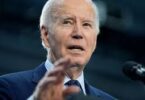Ghazanfar Ali Garewal
Toward the end of the 20th century, the Soviet empire was facing myriad challenges. At that time, Mikhail Gorbachev, who had an altogether different outlook from his predecessors, assumed the leadership of the USSR. He introduced the twin policies of glasnost (openness) and perestroika (restructuring), which were in stark contrast to the Soviet culture and sociopolitical system.
These policies raised concerns among the friends of the Soviet Union, particularly in China, and even brought them into a confrontational position. While intending to make the Soviet Union prosper again, he deconstructed the very fabric of the Soviet empire and accelerated its downfall. In the same “Gorbachevian” manner, the current president of the United States, Donald Trump has been rapidly pushing his country toward its decline.
Two striking parallels: Though many a parallel can be drawn between them, two are most striking. First, Gorbachev introduced policy reforms that were incompatible with the Soviet system and culture, and thus eroded the very base of the Soviet empire. In the same vein, Trump has been taking policy initiatives, at home and abroad, that have been considered anathema to US liberal values.
Second, by introducing his policy measures, Gorbachev drifted away from his country’s allies and even became at odds with them. In the same fashion, Trump has distanced the US from its allies and partners to a degree that was unimaginable before.
His recent decision to move the US Embassy from Tel Aviv to Jerusalem is but one example. Despite his warnings and threats, the world stood against him and, rightly so, against the US. A rare emergency session of the United Nations General Assembly was called after the US vetoed the Security Council resolution to condemn the decisions. President Trump and US ambassador to the UN, Nikki Haley, resorted to threats and warnings to swing the countries to their side. But even friends of the US such as the UK, Egypt and India remained unmoved.
According to a US news website, a correspondent for an Israeli news channel reported that the heavy-handed approach backfired when Canada decided to switch to abstention just to dispel the impression of being a US puppet. Political analysts in the US questioned the productivity of Trump’s decision. One prominent critic of Trump’s policies, Fareed Zakaria, called it an act of pandering rather than diplomacy. According to a recent poll, Trump’s approval rating has gone down as low as 35% since he failed to deliver much of what he promised during the election campaign. Going against public opinion has hardly been a celebrated tradition in the US political system.
Toward the same consequences?
In June, a Pew Poll found that the US image in international affairs had suffered badly because of Trump’s views. The survey revealed that US favorability had fallen to 49%, and in this backdrop, it is not surprising that the world abandoned Washington at the UN. The US has long been known as the champion of liberty, democracy and human rights. These three elements strengthened US supremacy in the world. Now, however, far from being an advocate of globalization and internationalism, the US has withdrawn into the cocoon of protectionism and nationalism. It is these policies that are leading the major powers to think they have to do without the US. At the same time, these policies are making America’s allies believe that Trump’s rhetoric is not a matter of conjecture only. It has eroded American credibility, so they are compelled to look for alternatives.
Faced with this dilemma, Lee Hsien Loong, prime minister of Singapore, asked a very pressing question when Washington withdrew from the Trans-Pacific Partnership: “How can anybody believe in the US any more?” While giving an interview to Time magazine, Lee predicted that Washington’s failure to ratify the TPP would diminish US influence in the region. Herein lies the problem: the United States’ unwillingness to fulfill its international commitments and its failure to restore the confidence of its partners and allies. The Group of Seven Summit in May was another episode of erosion of trust in the US, which ended with exposing splits between Trump and the European leaders.
They voiced their concerns and, at times, severely criticized US trade policies and its withdrawal from the Paris Climate Agreement.
These developments brought uncertainty to the long-term partnership between the US and its European allies. Trump began his presidential election campaign with a very attractive slogan, “Make America Great Again,” and he believes the key to reviving the old glory is avoiding globalization and reinvigorating the spirit of nationalism.
In doing so, he has failed to incorporate the US values of liberalism, democracy and human rights. He might be looking for the right thing, the revival of the US supremacy, but his instruments are faulty: military power, threats, and coercive policies. These amount to an antithesis of the US norms that became global.
If his policies continue the same trend, it should not come as a surprise if a tragic event takes place in the very matrix of the United States of America.






